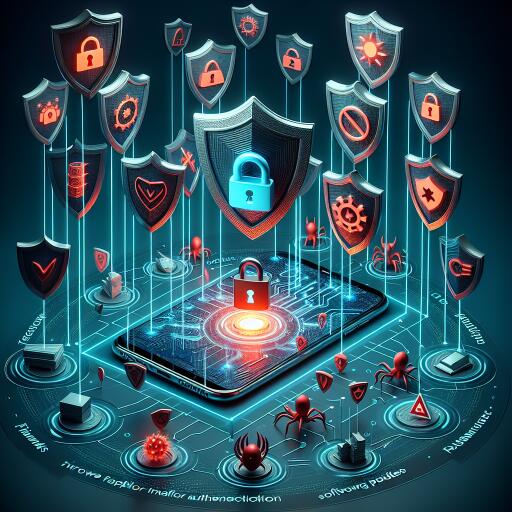18 Strategies for Enhancing Device Security Against Cyber Intrusions
As we entered the digital age with the advent of the World Wide Web in the 1990s, the world witnessed a new horizon of possibilities and the birth of numerous industries. However, this newfound connectivity also brought with it a spectrum of cyber threats. Email accounts became targets of relentless spam attacks; computer viruses wreaked havoc across business networks. The concept of theft underwent a transformation with the rise of hacking, which now included infiltrating computers to steal personal information and tricking individuals into revealing sensitive data. Suddenly, business secrets, banking information, and personal identities were under constant threat.
The cybersecurity landscape has only grown more complex and perilous over time. With businesses increasingly intertwined with technology, the necessity for robust security measures has never been more critical. Fortunately, there are comprehensive strategies available to protect vital data and systems from malicious cyber intrusions.
Fortify Your Devices: A How-To Guide
Despite the growing prevalence of sophisticated cyber threats like ransomware, business email compromise (BEC) scams, and data breaches, the reliance of businesses on the internet for operations such as financial transactions, inventory management, and customer engagements is unwavering. While large corporations might have the resources to repel major cyberattacks, small businesses are often more exposed due to a lack of awareness and limited resources for implementing cutting-edge cybersecurity solutions.
An oversight in cybersecurity can lead to catastrophic outcomes for any business. To bolster your company’s defenses against cyberattacks and safeguard sensitive information, adhere to the following strategies:
- Activate your firewall before connecting to the internet. Consider acquiring a hardware firewall from trusted vendors like Cisco, Sophos, or Fortinet for an additional layer of protection. Larger enterprises should look into dedicated business networking firewalls.
- Antivirus software is crucial for detecting and neutralizing threats in real time, preserving the integrity of your data. Opt for antivirus solutions that offer automatic updates to combat the latest viruses effectively.
- Make routine use of your antivirus program by scheduling regular virus scans, ensuring a consistently secure computing environment.
- Antispyware software, included in top antivirus suites, specializes in thwarting spyware by scanning incoming data and proactively blocking threats, offering real-time protection.
- Use secure passwords that blend uppercase and lowercase letters, numbers, and symbols. Avoid using easily guessed passwords or reusing them across different services. Employ a password manager like Dashlane or LastPass for efficient password management.
- Enhance your security by customizing your web browser’s security settings and considering secure browsing alternatives for additional privacy and protection against online tracking.
- Prepare for data recovery following an incident by leveraging backup utilities and cloud solutions like Google Drive for seamless data backup and retrieval.
Mobile Device Security: Shielding From Hackers
The unique challenges presented by mobile devices require distinct security measures to protect against cyber threats effectively.
Understanding Computer Hackers
Computer hackers aim to infiltrate internet-connected devices to steal, modify, or delete information. Although some hackers, known as white-hat hackers, focus on identifying security vulnerabilities to fix them, the majority harbor malicious intent, deploying malware to covertly undermine devices.
Motivations behind hacker attacks range from financial fraud and vandalism to hacktivism and corporate espionage, each demanding specific defensive strategies.
Cultivating Cyber Awareness
As technology evolves, so do the tactics of hackers. While the measures outlined above strengthen defenses against cyber threats, a proactive approach is essential. Cultivating a culture of cyber awareness within an organization, underscored by comprehensive training in cybersecurity best practices, serves as a crucial defense against the continuously evolving threats in the digital landscape. By fostering a strong security consciousness among all employees, businesses can enhance their resilience against cyber intrusions.
Employing these strategies not only enhances the security of your devices but also fosters a safer internet environment for all users. As we navigate through the digital era, staying informed and proactive about cybersecurity remains paramount. By taking these steps, businesses and individuals can significantly reduce their vulnerability to cyberattacks and contribute to a more secure digital world.









